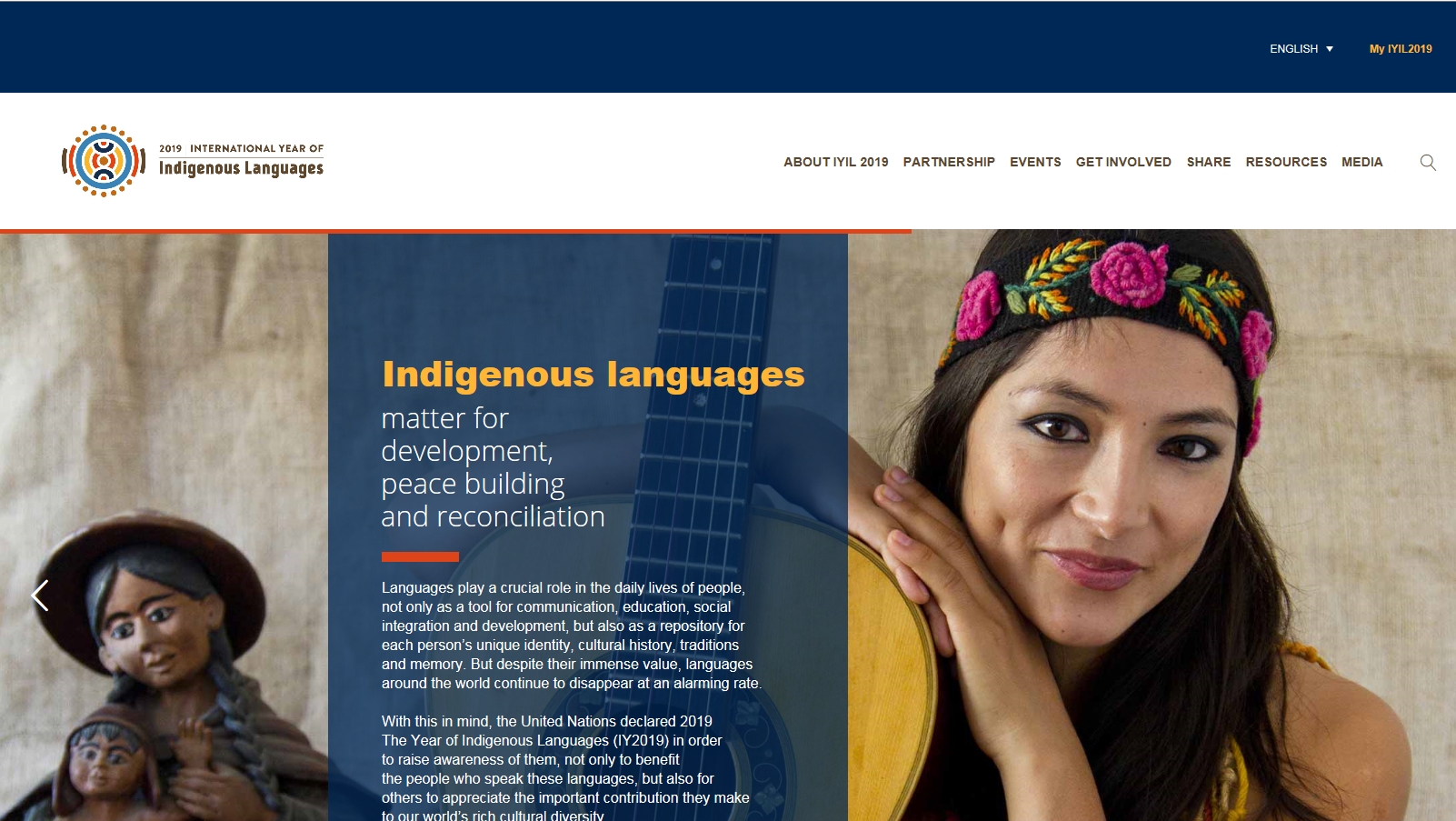
Das Ibero-Amerikanische Institut nimmt 2019 am Internationalen Jahr der Indigenen Sprachen teil, das von der UNESCO ausgerufen wurde. Unter diesem Titel werden weltweit Aktivitäten zu den indigenen Sprachen, ihrer Erforschung und Verbreitung gebündelt. Damit soll, so das Ziel der UNESCO, eine Verbindung zwischen Sprache, Entwicklung und Frieden geschaffen werden.
Das IAI wird in diesem Jahr seine Erwerbungen zu Materialien über indigene Sprachen, aber auch die Erwerbung von Primärtexte und Tonaufnahmen in den indigenen Sprachen Lateinamerikas nochmals verstärken. Außerdem werden rechtefreien Materialien digitalisiert und über die Digitalen Sammlungen zur Verfügung gestellt. Veranstaltungen wie z.B. wissenschaftliche Vorträge und Podiumsdiskussionen begleiten das Internationale Jahr der Indigenen Sprachen.
Im Rahmen des Internationalen Jahres der Indigenen Sprachen ruft die UNESCO bis zum 1. März 2019 zur Einreichung von wissenschaftlichen Beiträgen auf (den gesamten Call for Research Papers und das elektronische Formular finden Sie hier) :
Languages are a core component of human rights and fundamental freedoms. They play a crucial role in the daily lives of people all over the world, allowing them to preserve their history, customs and traditions, memory, unique modes of thinking, meaning and expression, but also to construct their future. The extraordinary language diversity found in the world fundamentally contributes to intercultural dialogue and cultural diversity, as each language is deeply imbued with the culture of the people who speak them.
Despite their immense value, languages around the world continue to disappear at an alarming rate, and most of them are spoken by indigenous peoples. Reasons for the endangerment of languages vary across different communities and locations. Indigenous people – who speak the majority of the 7.000 existing languages – are experiencing challenges to be reconnected to migration, educational disadvantage, illiteracy, assimilation, enforced relocation and other discriminations.
Language policies throughout the world – despite considerable differences in the models and approaches adopted by the respective countries – have often tended to conceive language issues as purely cultural ones. These are usually dealt with by organizations and centers for cultural memory and harmonization, or language development institutes. There is a need to further appreciate the great role that languages play in building inclusive knowledge societies, in providing access to information and in stimulating innovation, having an impact on multiple domains, including education, social and cultural life, the economy, science, technology, and others. Languages therefore contribute to human development, and are essential to realizing sustainable development, good governance, peace and reconciliation.
Contribute to the promotion of indigenous languages through your research
The United Nations General Assembly declared 2019 the International Year of Indigenous Languages, setting its priority to encourage urgent action to preserve, revitalize and promote indigenous languages. This Action plan starts from the recognition that indigenous languages embody rich cultural identities, and that each person should have the ability to use their home language as a prerequisite for respect of human rights. It consequently requires considerable re-working of the sustainable development agenda and national plans in order to encourage further international attention on indigenous issues. This objective could not be achieved without the production of high quality research and the formulation of concrete directions by prominent academics, researchers and practitioners specialized in different fields. These are key to inform new strategies that will address indigenous issues both within the Sustainable Development Agenda and national plans.
UNESCO is calling for the joint action of researchers and practitioners in order to put its message across and have an impact on the way in which indigenous languages are conceived, and their value appreciated by multiple stakeholders – governments, broader civil society, academia, the private sector and other actors. Making available these publications to the wider public through Open Access under the Creative Commons or any other open licensing system is intended to facilitate the promotion of indigenous languages globally.
Preserving, revitalizing and promoting indigenous languages at the national, regional and international level is a broad and long-term objective that involves different key areas of intervention:
- Humanitarian affairs, peace-building and national development plans (e.g. during and post-conflict period, radicalization and other; assimilation, mapping and revitalization policies related to languages);
- Indigenous education and life-long learning;
- Indigenous knowledge in science and health (including interventions for epidemic or pandemic diseases; activism for climate change; water, bioethics and other);
- Gender equality (e.g. reproductive health education policies, role of indigenous women in intergenerational transmission);
- Social inclusion and urbanization, ethics and civic engagement (e.g. recognition of sign languages, youth engagement, open solutions and other issues);
- Cultural heritage and diplomacy (concept of equality of languages, cultural identity imbued in languages);
- Technology, digital activism, and artificial intelligence(e.g. language technology);
Den gesamten Call for Research Papers lesen


